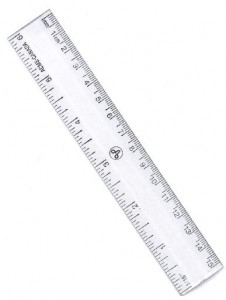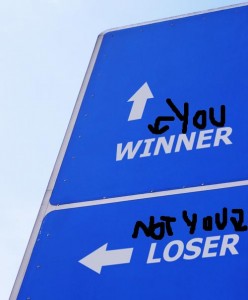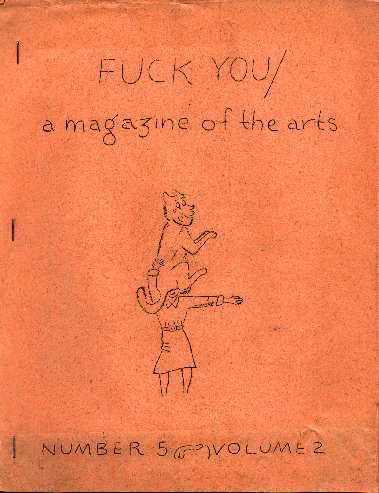Harold Bloom Viceland Interview
Read a report today in the Yale Daily News that Harold Bloom has had to cancel his classes this semester due to illness. He’s had a brutal last several years, but had seemed to be doing well lately–up until today’s announcement, anyhow. Here’s hoping that this is just a blip on the screen for him. Anyway, the above is from a great, and weirdly sweet, interview that I just uncovered that he gave to Vice Magazine last year. It’s worth reading in full.
Lastly, since HB tends to be a lightning-rod for controversy and/or ignorant invective, you are hereby reminded that a man is ill, perhaps gravely so, and you are forewarned to say something kind/useful, or else keep your bullshit to yourself for once.
Fuck You
glow interview with Ed Sanders over at Poetry Daily. If you have seen it, Fuck You. If not, Fuck You.
It’s pretty good to write here, because people leave us alone.
Moves in Contemporary Poetry
 Way back in the comments on Danika Stegeman’s poem “Panacea,” a discussion started about “moves” in contemporary poetry, and I mentioned that I’d seen the poet Elisa Gabbert start pretty awesome discussions about “moves” on her own blog and on the Ploughshares blog. Then she posted the following comment: “Hi Mike, I have definitely talked about moves before, moves I like and moves I don’t like and my own signature moves, but haven’t made a real list, certainly not a comprehensive list, certainly not the DEFINITIVE list. Let me know if you want to collaborate on a list of moves for HTMLGiant.”
Way back in the comments on Danika Stegeman’s poem “Panacea,” a discussion started about “moves” in contemporary poetry, and I mentioned that I’d seen the poet Elisa Gabbert start pretty awesome discussions about “moves” on her own blog and on the Ploughshares blog. Then she posted the following comment: “Hi Mike, I have definitely talked about moves before, moves I like and moves I don’t like and my own signature moves, but haven’t made a real list, certainly not a comprehensive list, certainly not the DEFINITIVE list. Let me know if you want to collaborate on a list of moves for HTMLGiant.”
Well, I thought that sounded like a terrific idea. So here it is, our stab at cataloging 41 popular moves in “contemporary poetry,” an exercise that’s fraught with peril, what with the competing definitions, camps, roles, and processes of “contemporary poetry,” the nebulousness of calling something a “move,” the inevitable non-definitiveness of such a list, and so on, but hey: dancing is fraught with peril too, and no one’s managed to stop me from doing that. So here we go. 41 moves. With mildly related pictures! In no particular order! Please argue and add in the comments. Many thanks to Elisa Gabbert for the bulk of the work on this list.
Thinking about Intervals and Nature
 As the new year and decade begin, I’m thinking about intervals. Most instantly, a year seems to be a more natural interval than a decade. Roughly the same things happen each year. There will be a shortest and a longest day and the air will grow warm and then cool again. The arbitrary part of a year is in its stopping/starting point. Nothing is magical so far as I can see about where we choose to end one year and begin the next. If anything, I’d prefer to wait until mid-February or so to conclude all of last year’s business and begin anew.
As the new year and decade begin, I’m thinking about intervals. Most instantly, a year seems to be a more natural interval than a decade. Roughly the same things happen each year. There will be a shortest and a longest day and the air will grow warm and then cool again. The arbitrary part of a year is in its stopping/starting point. Nothing is magical so far as I can see about where we choose to end one year and begin the next. If anything, I’d prefer to wait until mid-February or so to conclude all of last year’s business and begin anew.
A decade in the natural world seems to mean not much. But what about in a lifetime? Age 0-10, age 10-20, age 20-30, and so–these seem a bit more adequate as era-markers. Even in the 1800s decades were given sobriquets. There were the Hungry Forties (think potato famine) and the Gay Nineties (aka the Naughty Nineties; aka the Mauve Decade). But not before that; what about modernity made the decade seem like a definable, describable, identifiable interval?
Day is perhaps the truest time-interval. The sun will rise and set. While a year is a real thing, a felt thing, it is usually too drawn out and diffuse to pinpoint or summarize in a word. If you say that 2003 was a good year, I will know that it took the space of time for you to make that judgment. Mid-year, there is no telling. But a day has a character and a shape detectable even as it passes. It is defined by its largest moment. It can be remade no more than once, and the next day may be something else entirely. “Weeping may endure for a night, but joy cometh in the morning” (Ps. 30:5).
These are time intervals. Modern space intervals mean very little (inch, mile, pint) and exist only for the purpose of standardization, ratio.
Then there are language intervals.
An Indie Publishing Wiki
A while ago I talked about how I wished there were some kind of resource for independent publishers great and small and then Dave Housley and I started talking about how it would be great to start a wiki and then well, we did. The Indie Publishing Wiki is still in its infancy but I thought I would share the project’s existence so people can start adding their knowledge and participating in what we hope becomes a valuable resource for editors.
“An Australian study found that every hour per day spent sitting in front of a TV or monitor raises your risk of early death from heart disease by 18%, even if you exercise and aren’t overweight.” What??? (via Jezebel)
Mississippi Review flash fiction issue, guest edited by Kim Chinquee, includes some wonderful writers.
I is to Vorticism

Hearty congratulations to Ben Mirov, winner of the 2009 DIAGRAM/New Michigan Press chapbook contest. Read the press release–including exultant blurbs from Dobby Gibson and the great Elaine Equi–over here (pdf). That page also has a poem from the book, and an order form–you’ll want the latter after reading the former. Also, here’s Ben’s blog. Also^2, you can find even more Mirov in the premiere issue of Maggy, a sweet-ass new poetry journal that will be getting its own post later this week. (You’ll also find him in the next Agriculture Reader.) Anyway, congrats again to Ben, and here’s another poem from I is to Vorticism, which I was super-delighted to receive in the mail the other day, and have been happily working my way through:
Wind-Up Birds
Dear Mr. Murakami:
I am like that guy in your novel
who goes down in the well
and gets trapped there until
he finds a secret passage and escapes
or maybe someone lowers a ladder?
I don’t remember where he goes next
but I’ve wanted to tell you this
since I read your book in San Francisco
after a horrible breakup and discovered
a pale blue light behind my eyes
I had never noticed before.
I thought you’d written your book about me
without knowing it, of course.
I had the urge to write you a letter
explaining this but I didn’t want
to freak you out. I just wanted
to say thanks for being in my poem
and for the sense of wellness
that pervades my life these days.
P.S. I almost forgot to ask!
What should I do next?
William Burroughs’s Stuff
Peter Ross took some photos of possessions found in Burroughs’s windowless New York City apartment, preserved since his death in 1997. Here is an interview where he explains the project.


In Georgia today Gov. Sonny Perdue is arguing for a new bill that will make teachers’ pay pend on how their students’ testing scores come out. Somehow the program will also cost taxpayers. Curriculum remains unexamined. In other news, though I still don’t like Kid A, I listened to “Everything in its Right Place” 57 times in repetition at JFK airport and on the plane returning home.

